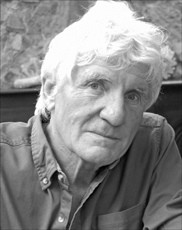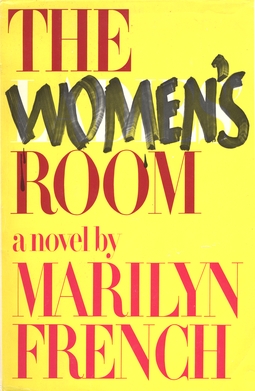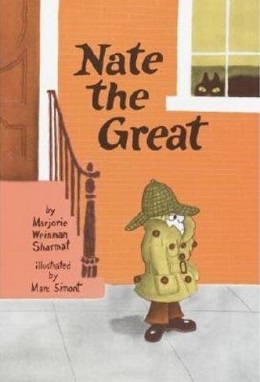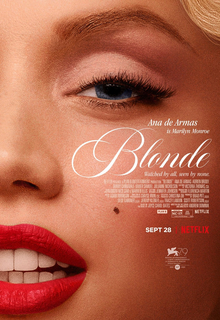
Marilyn Monroe was an American actress and model. Known for playing comic "blonde bombshell" characters, she became one of the most popular sex symbols of the 1950s and early 1960s, as well as an emblem of the era's sexual revolution. She was a top-billed actress for a decade, and her films grossed $200 million by the time of her death in 1962.

Anthony Adverse is a 1936 American epic historical drama film directed by Mervyn LeRoy and starring Fredric March and Olivia de Havilland. The screenplay by Sheridan Gibney draws elements of its plot from eight of the nine books in Hervey Allen's 1933 historical novel, Anthony Adverse. Abandoned at a convent as an infant, Anthony comes of age in the tumultuous turn of the 18th to the 19th century, the age of Napoleon. The audience is privy to many truths in Anthony's life, including the tragic story of his origins and the fact that the wealthy merchant who adopts him is his grandfather. Most important of all, Anthony believes that his beloved Angela abandoned him without a word, when in fact she left a note telling him that the theatrical troupe was going to Rome. The gust of wind that blows the note away is one of many fateful and fatal events in Anthony's story.

Dame Olivia Mary de Havilland was a British and American actress. The major works of her cinematic career spanned from 1935 to 1988. She appeared in 49 feature films and was one of the leading actresses of her time. At the time of her death in 2020 at age 104, she was the oldest living and earliest surviving Academy Award winner and was widely considered as being the last surviving major star from the Golden Age of Hollywood cinema. Her younger sister, with whom she had a noted rivalry well documented in the media, was Oscar-winning actress Joan Fontaine.
Lois Wendland Banner is an American author and emeritus professor of history at the University of Southern California. She is one of the earliest academics to focus on women's history in the United States. Her work includes biographies of Margaret Mead, Ruth Benedict, Marilyn Monroe and Greta Garbo as well as the textbook Women in Modern America: A Brief History.

Crystal Elizabeth Chappell is an American actress who played Carly Manning on Days of Our Lives from 1990 to 1993, Maggie Carpenter on One Life to Live from 1995 to 1997 and Olivia Spencer on Guiding Light from 1999 to 2009.

The Seven Year Itch is a 1955 American romantic comedy film directed by Billy Wilder, from a screenplay he co-wrote with George Axelrod from the 1952 three-act play. The film stars Marilyn Monroe and Tom Ewell, who reprised his stage role. It contains one of the most iconic pop-culture images of the 20th century – Monroe standing on a subway grate as her white dress is blown upwards by a passing train. The titular phrase, which refers to a waning interest in monogamous relationship after seven years of marriage, has been used by psychologists.

Dorothy Bussy was an English novelist and translator, close to the Bloomsbury Group.

Anthony Bruce Summers is an Irish author. He is a Pulitzer Prize Finalist and has written ten non-fiction books. He worked for the BBC in current affairs coverage as a producer and then as an assistant editor of the long-running investigative documentary series Panorama. His first book was published in 1976.

Heat and Dust is a 1983 British historical romantic drama film, with a screenplay by Ruth Prawer Jhabvala based on her novel, Heat and Dust (1975). It was directed by James Ivory and produced by Ismail Merchant. It stars Greta Scacchi, Shashi Kapoor and Julie Christie.

The Women's Room is the debut novel by American feminist author Marilyn French, published in 1977. It launched French as a major participant in the feminist movement and, while French states it is not autobiographical, the book reflects many autobiographical elements. For example, French, like the main character, Mira, was married and divorced, and then attended Harvard where she obtained a Ph.D. in English Literature. Despite the connection of The Women's Room to the feminist movement, French stated in a 1977 interview with The New York Times: "The Women's Room is not about the women's movement … but about women's lives today."

Rosamond Nina Lehmann was an English novelist and translator. Her first novel, Dusty Answer (1927), was a succès de scandale; she subsequently became established in the literary world, and intimate with members of the Bloomsbury set. Her novel The Ballad and the Source received particular critical acclaim.

Nate the Great is a series of 31 children's detective stories written by Marjorie Weinman Sharmat and featuring the boy detective Nate the Great. Sharmat and the illustrator Marc Simont inaugurated the series in 1972 with Nate the Great, a 60-page book published by Coward, McCann & Geoghegan. Simont illustrated the first twenty books, to 1998; the last ten were illustrated by Martha Weston, Jody Wheeler, or Olga and Aleksey Ivanov "in the style of Marc Simont". Some of the titles were jointly written with Sharmat's sister Rosalind Weinman, husband Mitchell Sharmat or sons Craig Sharmat and Andrew Sharmat. Regarding the series, Marjorie Sharmat has called her husband Mitchell "always my first editor, and it's been a very happy collaboration".
Strawhead is a play by American writers Norman Mailer and Richard Hannum about Marilyn Monroe. The play is an adaptation of Mailer's 1980 book Of Women and Their Elegance, an imagined memoir told in Monroe's voice.

Sally Bowles is a fictional character created by English-American novelist Christopher Isherwood and based upon 19-year-old cabaret singer Jean Ross. The character debuted in Isherwood's 1937 novella Sally Bowles published by Hogarth Press, and commentators have described the novella as "one of Isherwood's most accomplished pieces of writing." The work was republished in the 1939 novel Goodbye to Berlin and in the 1945 anthology The Berlin Stories.

Olivia is a novel by Dorothy Bussy. In her literary work, it was the only novel written by Bussy; it was published in 1949 by Hogarth Press, the publishing house founded by Leonard and Virginia Woolf. Bussy wrote it in French and signed her work with the pseudonym "Olivia." "Olivia" had been the name of one of Dorothy's sisters who died in infancy. The book was translated into English and then retranslated back into French. Bussy dedicated it "to the very dear memory of Virginia W."
Invitation to the Waltz is a novel by Rosamond Lehmann, first published in 1932 by Chatto & Windus Ltd. The prequel to Lehmann's The Weather in the Streets (1936), the novel follows the preparations of two sisters, Kate and Olivia Curtis, for Sir John and Lady Spencer's dance. BBC Radio recorded and broadcast in 2001 a dramatization by Tina Pepler as Olivia's stream of consciousness.
Pilgrimage is a novel sequence by the British author Dorothy Richardson, from the first half of the 20th century. It comprises 13 volumes, including a final posthumous volume. It is now considered a significant work of literary modernism. Richardson's own term for the volumes was "chapters".

Blonde is a 2022 American biographical psychological drama film written and directed by Andrew Dominik, based on the 2000 novel of the same name by Joyce Carol Oates. The film is a fictionalized take on the life and career of American actress Marilyn Monroe, played by Ana de Armas. The cast also includes Adrien Brody, Bobby Cannavale, Xavier Samuel, and Julianne Nicholson.

Tempting Fate is a 2019 American made-for-television drama film directed by Kim Raver in her directorial debut and Manu Boyer, starring Alyssa Milano as a married housewife who becomes pregnant with another man's baby. The movie is based on author Jane Green's 2014 New York Times best-selling novel of the same name.

The Weather in the Streets is a 1983 British romantic drama television film directed by Gavin Millar, written by Julian Mitchell, and starring Michael York, Lisa Eichhorn and Joanna Lumley. Adapted from the 1936 novel of the same title by Rosamond Lehmann, it originally premiered at the London Film Festival on 30 November 1983, before being broadcast on BBC Two on 12 February 1984.
















